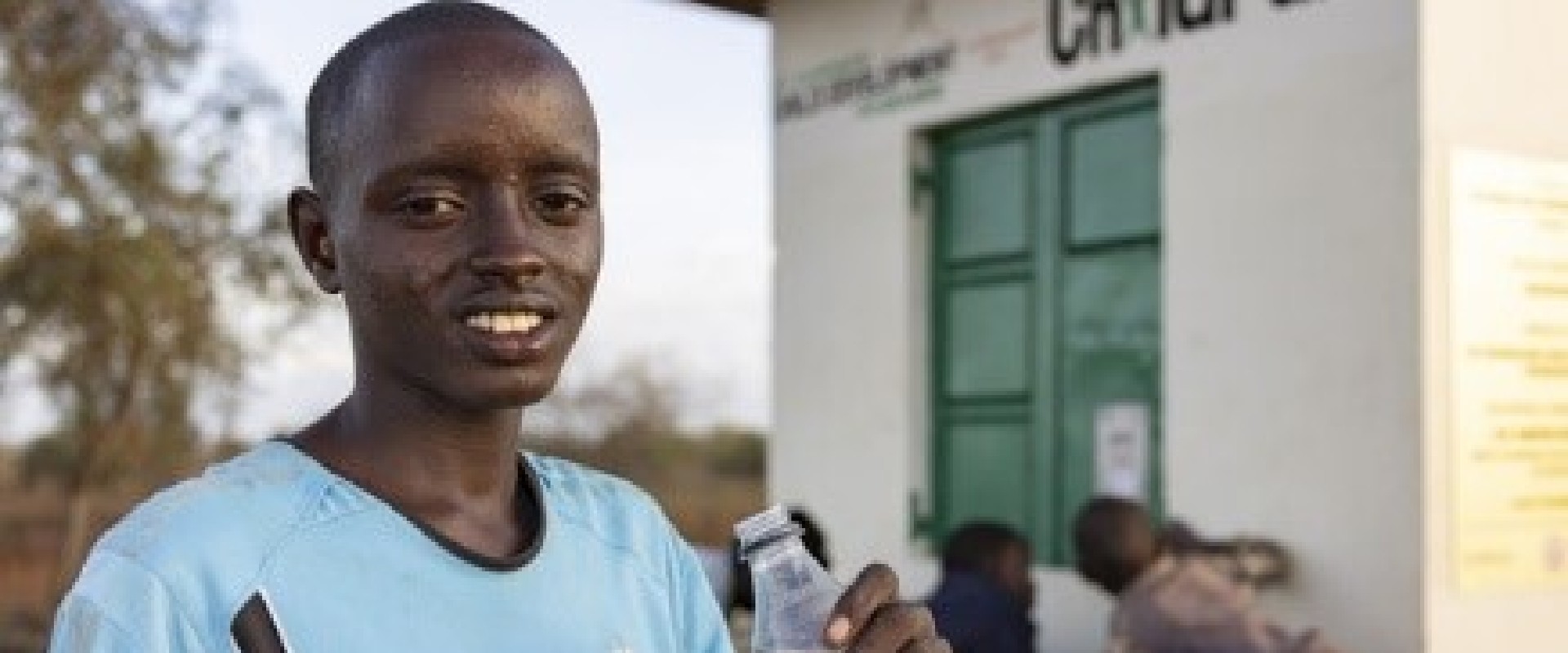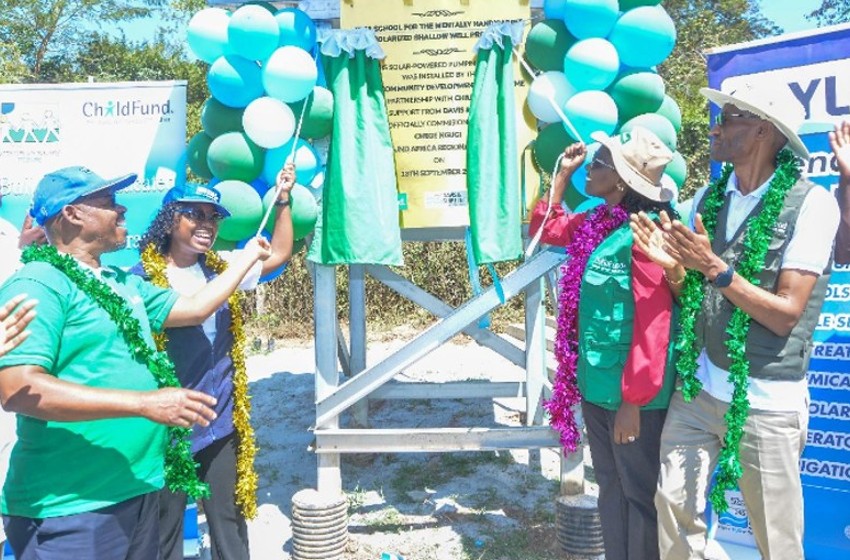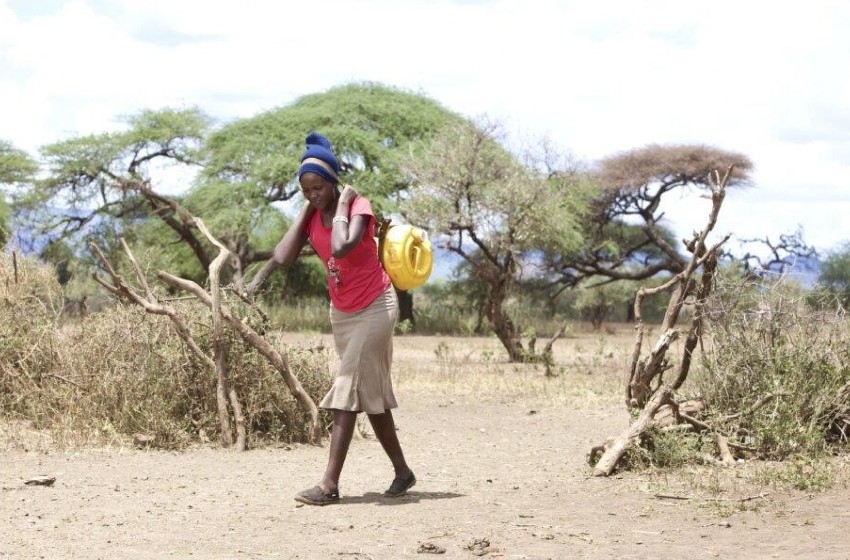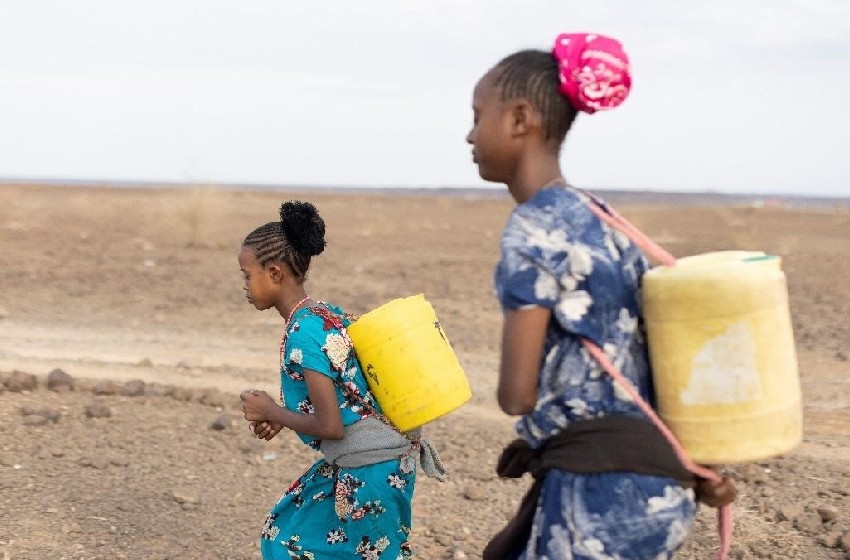A lifeline in Kajiado: How clean water transformed Dickson’s community
August 15, 2024

Dickson drinking water
Dickson’s family are traditional Maasai herders living in Kajiado County. Finding water for their household and livestock has always been their greatest challenge. For the first 14 years of his life, Dickson would make a long and arduous journey to a small stream 6km away to collect water for the household. The stream is one of a few in the county that flows from the foothills of Mount Kilimanjaro – only about 35km away – in neighboring Tanzania.
“Wildlife, livestock, people—we all shared the same water. We used to drink from the same source because there was only one stream in the whole area,” remembers Dickson. “With the long distances, walking to the stream and fetching water in the hot sun was tiresome. It was a lot of work carrying jerrycans all that way.”
Alongside sheep, goats and cattle herds, Dickson and his brothers and sisters would fill up jerry cans with muddy water to bring back home. “You get an unsettling feeling when you drink this water” says Dickson, now 15. “The water is so dirty. You can see it with your own eyes, even if you can’t see all the parasites that are in it. The fear alone that you have while drinking is enough to make you sick.
“Once, I got seriously ill and was bedridden for a while. The people at the clinic told me to never drink that water again, but I had no choice. I was sick for a week and couldn’t attend school. I had stomachaches, headache, fever.”
2023 marked the last year of a severe and prolonged drought in Kajiado County. The drought was so severe that this small stream Dickson and his family relied on for their herds and household water dried up. To cope, the family sold off many of the livestock they had so they could buy water from private water trucks or motorcycle drivers who would bring in 20-liter jerrycans for sale. “When it dried up, we [the entire community] had to spend money and buy it from water vendors outside the village,” says Joseph Shinai, an elder and traditional leader of the village.
Sadly, even the small number of goats and sheep that remained in Dickson’s family’s pen perished in the continuing drought. His parents began looking for odd jobs like mending fences, washing clothes, or shepherding others’ surviving herds as their source of income. Then in late 2023, ChildFund’s borehole system was opened, providing fresh, clean water to the village. It was a balm to this weary community on the brink of disaster.
The borehole system in Dickson’s village was drilled deep below the ground surface to access clean water from the aquifer below. It uses solar power (plentiful in these parts) to pump water up to a reserve tank on a rocky hill. From there, the water is distributed to four points throughout the village: two points at the nearby primary school and ECD center, and two water kiosks open to the community at opposite ends of the village.“It was a sigh of relief for the whole village and a moment of great happiness when ChildFund drilled the borehole here,” says Dickson, smiling. “We drink the water without any fear, and we drink it happily. Clean water is good because we don’t get sick. And we don’t spend money as much on going to the health center for treatment.”
Installing clean water access points at his school was especially crucial, says Dickson, who has finished primary school and not yet gone on to secondary. “It used to be that the kids would have to carry jerrycans to school and then leave school to fetch dirty water, but now they have clean water right outside their classroom. Young children won’t be thirsty for water now. They just drink at the school.”
This water project has changed the community totally,” says Elder Shinai of the borehole system, which now supports around 1,500 people with clean water. “When you are out doing odd jobs to support your children, or even when you get here late at night, you can still access water.”
As this community recovers from years of drought, families here can begin to rebuild their herds and livelihoods with the assurance that they now have a lasting source of water for their families.







